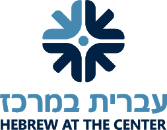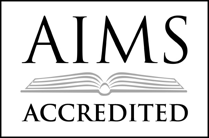Making Math Real
October 26, 2017 by
This fall, all MILTON General Studies faculty members participated in professional development on experiential math education. The intensive 6-hours of learning were led by Jeff Heyck-Williams, Director of Curriculum and Instruction at Two Rivers Public Charter School. The math instruction training focused on having students explore complex mathematical concepts and identify multiple methods for solving problems through problem-based tasks.
Guiding Students toward Expert Thinking in Math
Our teachers are already applying knowledge from this training to further develop our math curriculum. MILTON’s math program is designed to develop conceptual understanding, procedural skills, and the aptitudes for problem solving in our students. We are committed to utilizing a variety of strategies to promote in our students a deeper conceptual knowledge of mathematics, strengthen students’ ability to strategize, and support students to drive their learning and find multiple ways to solve real problems.
Math Mastery Aligned with our Educational Philosophy
With its roots in hands-on learning, collaborative problem-solving, inquiry-based STEM education, and real-world applications, experiential math is in line with MILTON’s education approach. Catherine Twomey Fosnot, a leading voice in mathematics education who authored the Contexts for Learning Mathematics curriculum that we are currently piloting in Grade 2, reflects that elementary school mathematics is disconnected from the real world of what mathematicians do: “Mathematics is a highly creative activity. Mathematicians solve problems but also pose problems. They inquire. They explore relations, investigate interesting problems, and craft proofs. They present their ideas to the mathematics community.” (Contexts for Learning, Overview, p. 8). This approach to mathematics education is totally in keeping with MILTON’s educational philosophy and pedagogy.
‘Getting into the Math Game’
Mathematics education expert Grant Wiggins uses a coaching analogy to explain the limitations of only using direct instruction and student practice to build mathematical knowledge and skills. According to Grant, math students need to ‘get into the game of mathematics’ and apply the skills that they practiced. A good coach will drill the players – but no athlete will continue to come to practice if they do not have the opportunity to play the game. And if the opportunities to play are rare, the players will struggle to apply the knowledge they learned in drills to a real game. Similarly in math education, it is imperative but insufficient for students to cultivate foundational skills solely through direct instruction and drills; when these are the only methods of instructions, students may develop a dislike for mathematics and flounder when they are required to apply their knowledge and skills.
At MILTON, our students are provided with opportunities to ‘get into the math game.’ Teachers vary their methods of instruction to engage our students and support their learning. Most teachers use the Everyday Math curriculum as a resource to guide student learning and to build foundational skills. In addition, students play the game of mathematics through opportunities to problem solve, grapple with real-life problems, and by approaching problems using a variety of strategies.
To approach their math puzzles and solve tricky problems, students across all grades have been using various thinking routines to document their learning and to make their thinking visible. One example is the use of a thinking routine called KWI: Know/Want to Know/Ideas. The students make a chart that asks three questions: What do I know about this problem? What do I want/need to know to solve this problem? What ideas/strategies do I have to solve this problem?
Read more about some of the examples of experiential math in practice at MILTON this month.
Learning through Reflection – Students and Faculty
To wrap up their learning, the teachers and students meet at the end of a lesson to debrief and reflect on the problem-based task. This meeting aids the development of the students as mathematicians in a learning community. At these meetings, the teacher focuses on the students’ reasoning as they consider the key ideas, strategies, challenges, and solutions connected to the problem-based tasks.






